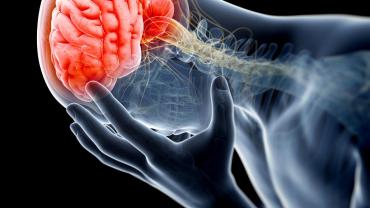
The treatment of concussions and traumatic brain injury (TBI) is a clinical challenge. Medical treatments for post-concussion symptoms have consisted mainly of opiates for headaches anti-depressants anti-nauseas anti-vertigo stimulants and other medications to increase neurotransmitter levels.
The traumatic forces involved in concussion and in those with post-concussion syndrome have been shown to result in a decrease of glucose use by the brain and changes in cerebral blood flow.
Previous studies have failed to identify an effective treatment in controlling aspects of neuroprotection neuroinflammation and neuroregeneration.
In a new study just published two days ago in the Journal of Dietary Supplements researchers demonstrated that zinc supplementation improved clinical outcomes in patients with severe head trauma.
This study included 100 patients with severe head trauma ranging from 18 to 65 years of age. The participants received either a placebo or 120 mg of zinc. Plasma zinc and copper 24-hour urinary zinc excretion ESR CRP and WBC were all assessed on days 1 and 16. Other assessments included Sequential Organ Failure Assessment (SOFA) Glasgow outcome score (GOS) mortality rate and length of stay.
In this study zinc supplementation had positive effects on GOS SOFA score and inflammatory markers in patients with severe head injury. Plasma zinc levels significantly increased in the zinc group as compared to the placebo group on day 7. The SOFA GOS and inflammation factors were significantly better in the zinc-supplemented group by day 16. In addition the length of stay was shorter and mortality was lower in the zinc group.
Additional Nutrient Considerations
Previous research has shown how early treatment of high dose omega-3 fatty acids improve outcomes from traumatic brain injury. The brain needs to be saturated with high doses of omega-3s in order for the brain to heal. If these individuals do not have an optimal supply of EPA and DHA healing will likely be impaired. In addition there is no negative impact supporting these patients with optimal nutrition to regain as much function as possible.
Glycerophosphocholine (GPC) has been used to prevent damage to brain cells after blood flow - and thus oxygen - has been cut off to those cells. GPC also supports the brain's ability to recover after traumatic brain injuries and helps to reduce the symptoms associated with concussion and post-concussion syndrome. GPC is a form of choline that has been shown to protect and repair damaged brain cells.1
In one study on GPC twenty-three patients who suffered from concussions and cerebral contusions were given GPC for a three month period. At the end of the study ninety-six percent of the patients' mental faculties had improved significantly.2
Other brain supportive nutrients to consider include acetyl-l-carnitine inositol and phosphatidylserine fish oil krill oil and MCT oil.
By Michael Jurgelewicz DC DACBN DCBCN CNS